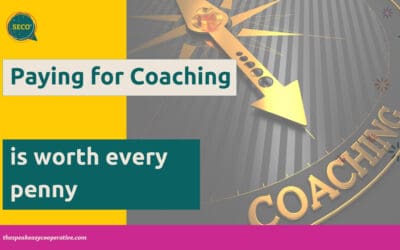How many times have I had a student say, “I must not be a singer” or “I guess I am not good enough to go to (insert big name college/city of choice here)” or “Maybe I am not cut out for this”. Gasp! So sad! So untrue!
Or is it?
Lotsa times, I have to agree with those students. You aren’t a singer. And you aren’t good enough. You aren’t cut out for this.
And it is your own fault.
Before you get all mad at me, and say I am cruel, and that I am not supportive, and I need to have compassion, hear me out.
Competence is the ability to
do something successfully or efficiently.
Synonyms:
Capability
Proficiency
Accomplishment
Expertise
Skill
Prowess
Mastery
Who in their right mind thinks these adjectives come about through natural giftedness only?
No one wakes up one morning suddenly able to take the bar exam just because they love justice.
No one writes up the perfect profit and loss report just because they love business.
And no one performs eight shows a week for 32 weeks out of the year without getting injured (vocally or bodily) just because they love the theater.
The Lawyer, the CFO, and the Performer all are able to do what they do because they:
- Study with people who know more then they do.
- Learn new stuff on the daily.
- Memorize information constantly.
- Repeat all of the above.
In short: THEY PRACTICE.
Back to those students who say they aren’t good enough: When I probe into their practice rituals, I discover that there *aren’t* any practice rituals.
Guess what? YOU HAVE TO PRACTICE. (Angels singing here: AHHHHH!)
Guess what else? STRIVING FOR GOOD ENOUGH, ISN’T.
Guess what else, else? YOU ARE NOT ALLOWED TO JUDGE YOURSELF UNTIL YOU PRACTICE ENOUGH TO KNOW WHAT YOU’RE JUDGING.
You have to know HOW to practice. You have to work for your right to judge your competence. You can’t just decide you are good or bad if you don’t have enough knowledge or sense to build your own rubric and hold up your own standards.
You have to practice on purpose, with purpose, knowing the difference between perfect and poor. You have to strive for perfect.
Malcolm Gladwell, in his book Outliers, talks about The 10,000 Hour Rule. It’s a GREAT Chapter. However, many folks forget to look at the original study, by Anders Ericsson.
When you do, you see something REALLY important. You see it is the deliberateness of practice that makes the greatness, not necessarily the amount of time.
Practice that strives for perfection looks like this:
- Dedicated time: Put it in your calendar
- Highly Specific: Pick the tiniest of concepts or skills to hone during the time period you choose. Don’t work entire pieces/monologues/scenes until you have chiseled them and are in polish phase. (This is what I’ll break down next week!)
- Measurable Goals: Write (Yes, on paper. So old school, I know) an “I will…” sentence about each concept/skill you are going to work on. Examples: I will hold continued vibrato in measures 12-44. I will master my entrance after the key change on page 4. I will modify the shape of my mouth on each breath, matching it to the coming vowel. I will write out a paragraph of subtext for the first 3 lines of my monologue.
- Disciplined: Actually do what your sentences said you would. Don’t get distracted.
- Tangible Outcomes: Write a “Now I can…” sentence about what you accomplished. It may not be what you hoped. So what. Recognize the improvement. Examples: Now I can continue the vibrato between measures 24-32. Now I can enter correctly 50% of the time at the key change on page 4. Now I can get the breath/vowel combo on 75% of the song. Now I can imagine exactly where I am when I speak the first three lines of my monologue.
- Rewarded: After you did the work, play around. Sing through stuff you love, belt for a bit, improv some comedy routines, whatever you just *love* about performing.
- The culture of convenience we have grown accustomed to has whittled away our ability to focus, and our perseverance. Our culture of instant gratification, married to our culture of perfectionism, has created the assumption that if we cannot get something right the first time, we are obviously not cut out for it.
This sounds bad. Well, I don’t think it is. I think it forces us to be efficient at practicing. I think it forces us to be deliberate.
After you have actually practiced, and done so deliberately, and worked for perfection, you will see significant improvement.
Then, and only then, have you earned your right to say that you aren’t cut out for this.
NEXT WEEK:
How to learn material. Like, *really* learn it~ and Make it a Masterpiece. (the Inspect/Chisel/Polish method)





0 Comments